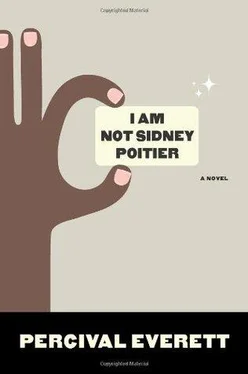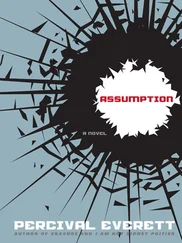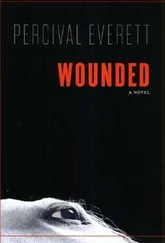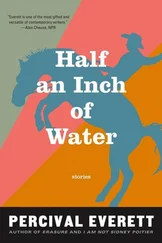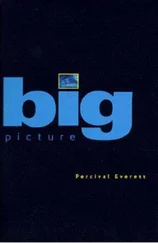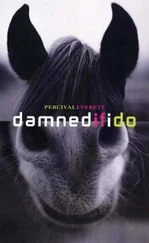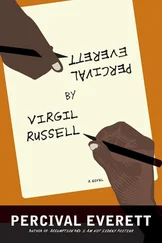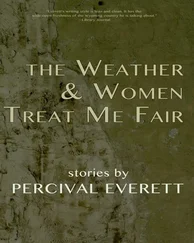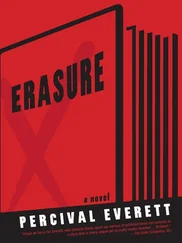“Just like that?”
“Done. Tell me, is your name really Not?”
“Not Sidney,” I corrected her.
“Not Sidney.”
“That’s what my mother named me.”
“It’s quite an interesting name.”
“If you say so.”
“May I ask, is your father Sidney Poitier?”
“No.” I answered quite definitely, but the fact of the matter is I was not quite definite; I did not know. I had no reason to suspect that Sidney Poitier was my father, but I also had no idea who my father was. I knew nothing about the man, whether he was a man or a basting syringe. Nothing. I’d asked my mother a couple of times during my short years with her about him, but her answers were either so vague and confusing as to be useless or no answer at all. Once after dinner, as we sat in front of the television watching an Adventures of Superman rerun, I asked, “Was my father handsome?”
She replied, “Some might say yes.”
“Was he smart?” I asked.
She stared at the television. “Why is it that after all the bullets have bounced off Superman’s chest, he then ducks when the villain throws the empty gun at him?”
I looked at the television and wondered, knowing also that my quest for some detail about my history had been again thwarted, albeit with a very good question. I never pressed terribly hard, thinking that someday the story would surface, but then she died.
I looked up to see Gladys Feet staring at my face.
“The resemblance is remarkable, uncanny,” she said. I believe she caught on that she was making me decidedly uncomfortable. She changed the subject. “So, what is it you plan to study?”
“I haven’t decided,” I said. “Psychology maybe or philosophy. I don’t know. I want an education, that’s pretty much it.” I sounded so much like a student. I liked it. “I don’t even know how I can decide what to study until I have that.”
“That’s a very clearheaded way to approach it,” she said.
“Don’t be patronizing,” I said. “I’m giving you money and that’s what matters to Morehouse. Perhaps I’ll get an education, perhaps not. That’s up to me. But don’t be patronizing.”
“I apologize.”
“You needn’t be sorry. It’s your job to be that way.”
“How old are you?” she asked in a way that suggested she was making a comment rather than looking for an answer.
“I’m eighteen years old. Nineteen, if you choose to count my extra year in the womb.”
“Excuse me?”
“I’m eighteen,” I said.
She shook her head. “You seem wise beyond your years.”
She was being patronizing again, but I let it go. It was obvious she couldn’t help herself. I wondered if there was a name for her condition. She wasn’t exactly kissing my ass and she wasn’t exactly flirting with me, but with a little shove she’d have shit on her nose and I’d have a date. Perhaps she was not precisely doing anything. Perhaps each and every one of her moves and gestures was approximate. Perhaps she was smarter than I thought, smarter than me. After all, she was collecting three hundred and twenty-five thousand dollars from me.
“May I ask you a question?”
I wanted to inform her that she just had, but I nodded instead.
“How much money do you have?”
“I don’t know. It changes daily. Hourly, I’m told.”
“I see.” She tugged at her collar as if a little hot.
“One other thing,” I said.
“What’s that?”
“I don’t want anyone to know about my gift to the school.”
“Okay. That’s a simple matter.”

Autumn approached with more heat than most of the summer had served up — nasty, humid, searing heat that made it impossible for one to remain dry. At least I couldn’t seem to remain anything but soaked with perspiration. It was September and I was a college student, a sweat-drenched college student, a fact that didn’t seem to matter as the first thing I learned was that I was as much of an outcast at the university as I had been in high school, only that here instead of beating and teasing me, they simply ignored me. I could have made my first day a little easier had I just once beforehand visited the campus. Then I might have at least had an inkling where one or two buildings might be, but no, I stayed away, reading and thinking. The latter activity, I was certain, would finally be my downfall. Downfall sounds a bit melodramatic or even vain, certainly romantic, as if I believed I occupied or expected to achieve some station, but the fact was I believed thinking or overthinking finally would not serve me well, if at all. Perhaps it’s not even thinking I’m talking about, but pondering or wondering or stewing or whatever the hell I’m doing right here.
I managed to register for all my classes, just as all the other freshmen so managed and, I assumed, without much less surprise than I. It was a complicated matter that might or might not have had a computer involved. My classes were what one would expect, predictable survey courses, composition, and a rudimentary introduction to calculus. I decided to try to get into an upper-division English course titled the Philosophy of Nonsense taught by some guy named Percival Everett. I needed his signature to add the course, and so I went to his office. I found his door open and before I tapped on the jamb to announce myself I saw that the room was lousy with sports equipment, basketballs, inflated and not, tennis and squash rackets, a hockey stick, a baseball bat, a baseball glove on his desk, and a pair of boxing gloves hanging on the wall between portrait drawings of James Joyce and Terry McMillan. There was a photograph of another man high on the wall above the others. I knocked.
“Come in and sit down,” Everett said, continuing to read Sporting News. “What do you need?”
“Your signature,” I told him. “I want to take your Nonsense course.”
“What year are you?” Still he didn’t look at me.
“I’m a freshman.”
“Anybody ever tell you that you look like Harry Belafonte?”
“Never.”
“I’m not surprised. Where’s your card?”
I pushed my blue card toward him, and he looked at me for the first time. “Nothing like Belafonte,” he said. He looked at my card. “Not Sidney?”
“That really is my name,” I said.
“Or else it wouldn’t be on the card,” he said. “I like it. Do you play golf? And I don’t mean miniature golf.”
“I never have.”
“Good. It’s a stupid game. A damn waste of water, keeping all that lawn alive and green. What about lunch? Do you eat lunch?”
“Occasionally.”
“Me, too. Come on, I’ll buy you some of what passes for food on this campus. What do people call you?”
“They seldom call me, but when they do, they call me Not Sidney.”
He looked at me. “That’s too bad.” Then he studied his desktop. “Tell me, do you see my glasses?”
“They’re on your head.” I pointed.
He nodded. “That’s a good place for them. Think I’ll leave them there. Come along, Mr. Poitier.”
“May I ask who that is a picture of?” I pointed.
“You may and you have,” he said. “That, Mr. Poitier, is Pinto Colvig, one of the great artists and thinkers of our time.”
“I don’t know his name.”
“You might know him by another name. He was the first Bozo the Clown. A genius. Oh, there were a lot of Bozos after him, but there will never be another Pinto Colvig. Even his son Vance was no Pinto. And that name. Pinto Colvig. What restraint it must have taken to not simply use his real name.”
Everett was shorter than me and walked with a slight limp, favoring his right leg, but he walked quickly, if not in a straight line. After the third time he grazed me with his shoulder, he said, “I’m a weaver. Can’t help it.”
Читать дальше
